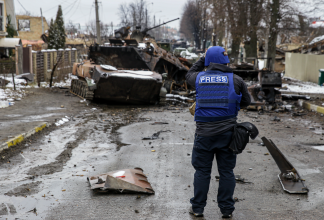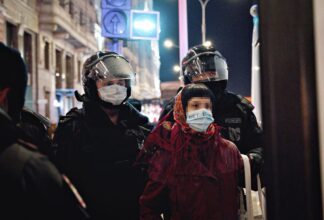Treason Bill a Threat to Civil Society
Last week, the Russian parliament voted for amendments to existing legislation that widens the legal definition of treason, equating it to espionage, and adds international organisations to the list of those that can be charged with high treason. If introduced, international organisations and foreign citizens can be charged with up to 20 years in prison for high treason.
While the current law describes high treason as activities threatening Russia’s external security, under the new legislation any activity that undermines Russia’s national security, constitutional order, state or territorial integrity, would be considered high treason.
“We are worried by this occurring negative trend of laws passed that compromise and restrain the work of human rights organisations in Russia after Putin was reinstalled as president,’’ said Joanna Kurosz, Eurasia Programme Director, Civil Rights Defenders. “We urge the Russian Duma to restrain from a final approval of the bill.”
The bill introduces amendments to existing legislation – all of which can be used to deem oppositional activity dangerous. According to the amendments, unanimously approved in the first reading, anyone – including international organisations and foreign citizens – can be charged with up to 20 years in prison for high treason. Treason also includes activities such as financial or consultative assistance to a foreign state or an organisation.
Should the bill pass after the third reading, it will further reinforce the amendments of the NGO law classifying organisations that receive funding from abroad as “foreign agents,” which comes into force in late November.
The parliament´s actions also succeeded the USAID ceasing its activities in Russia after the government accused the organisation of using funds to influence elections.
Paired with recent laws and amendments restricting freedom of expression, the Russian government continues its tough approach to dissent.


